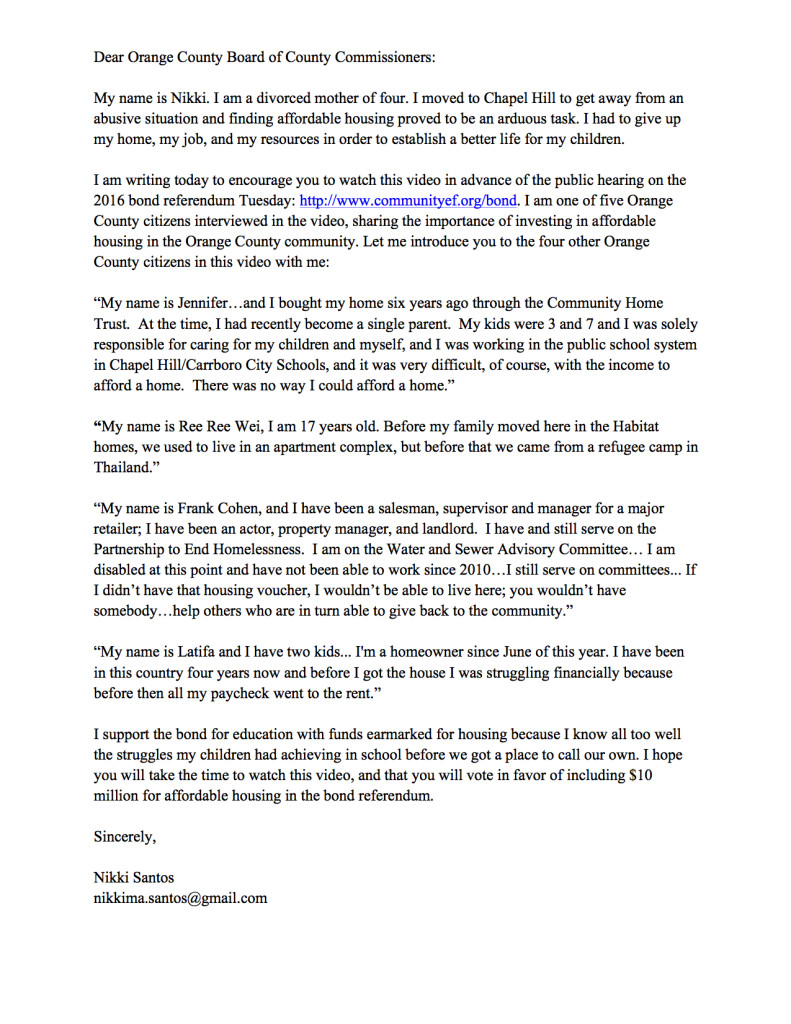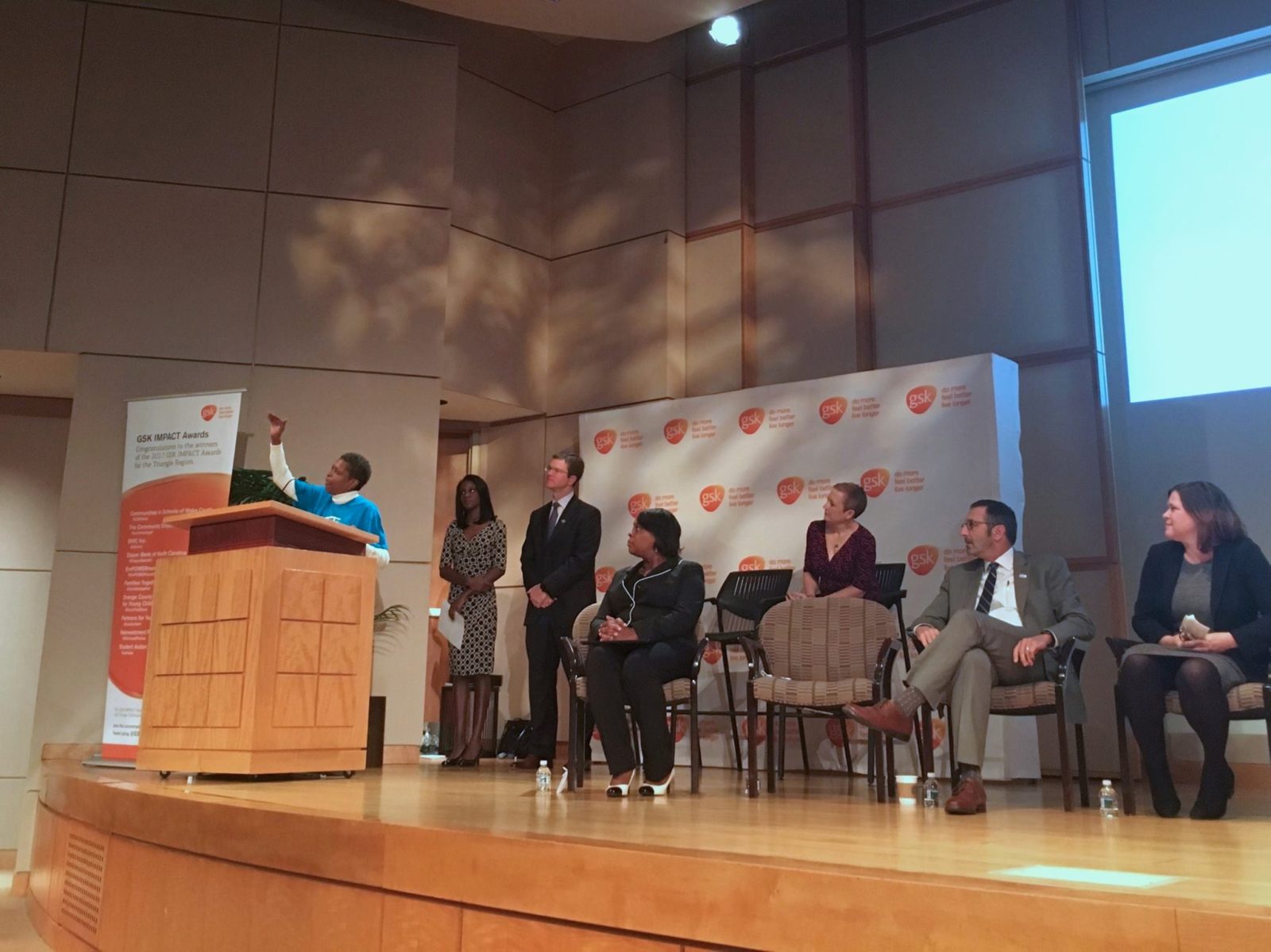
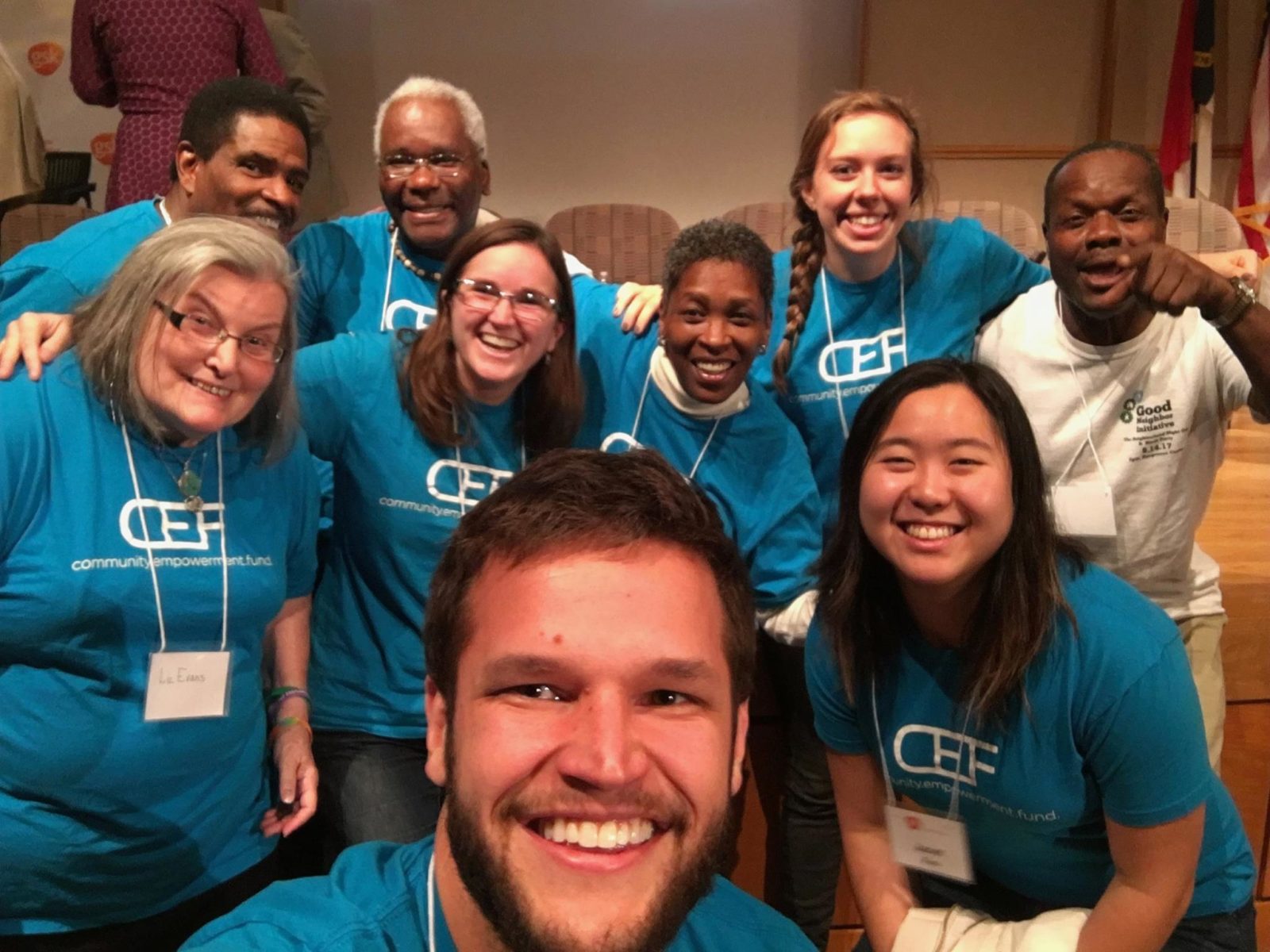
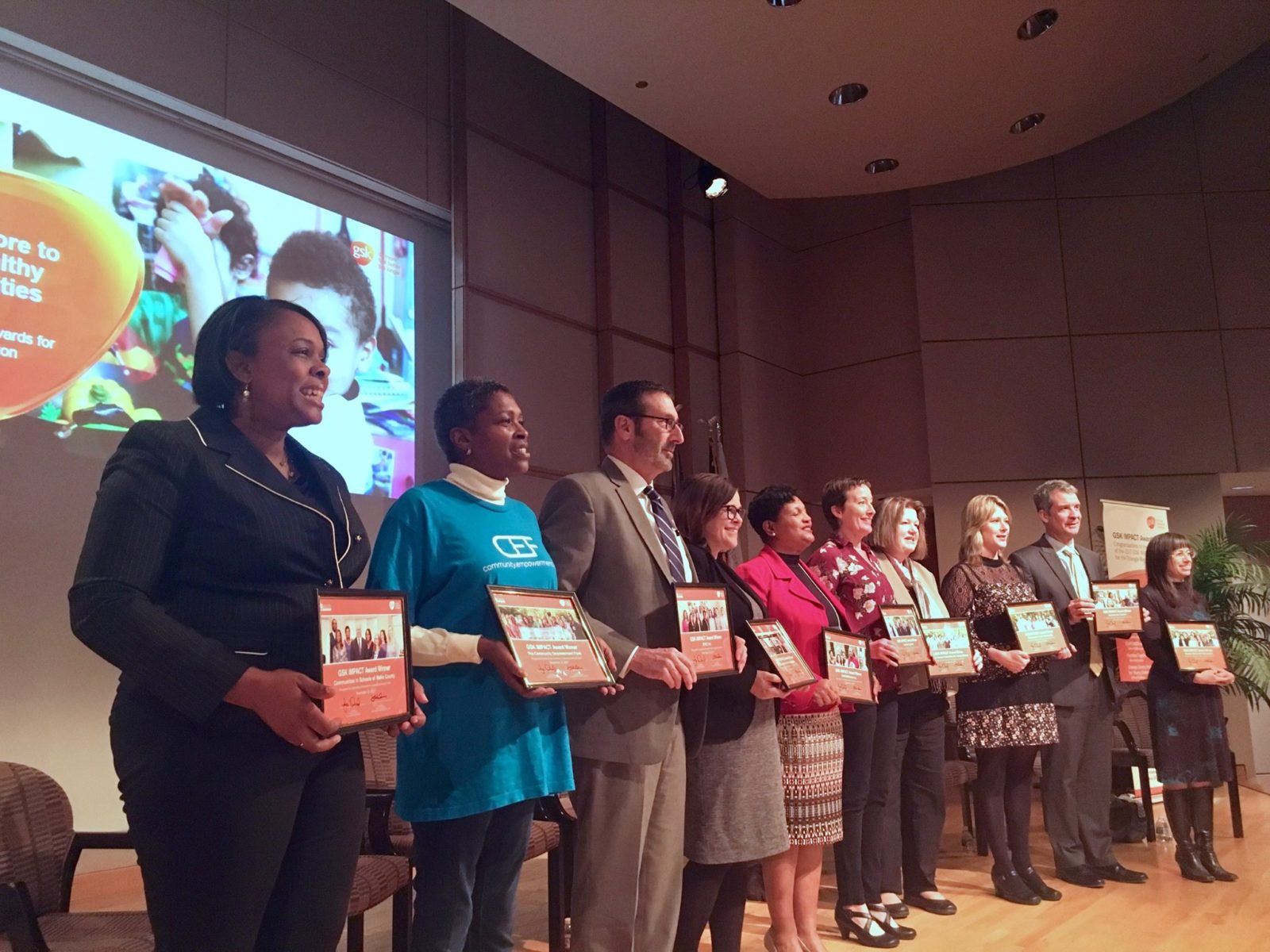




CEF’s Program Coordinator and Operations Coordinator, Maggie West and Jon Young, rode the Megabus up to DC last month to attend the Assets Learning Conference, hosted by our friends and partners at CFED. Here’s a peek at what got us excited and where we’re taking those ideas next!
Financial Empowerment through Municipalities
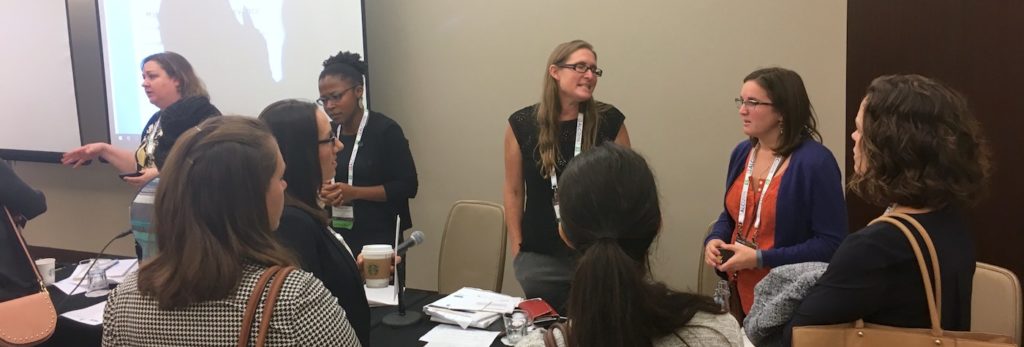
CEF’s Maggie West presented on a panel for “From Crisis to Financial Stability” at the conference!
So many ideas, sessions, and conversations inspired us to deeper reflection and thoughtful action…. far too many to name here! Moreover, the opportunity to connect with groups from all over the country who share our commitment to improving financial well-being through creative and responsive strategies was reinvigorating and exciting!
On Sept 15th, at the Justice United Public Assembly at St. Thomas Moore, Yvette Mathews led a choir of 22 Members and Advocates in song, singing soulfully for the cause of affordable housing in Orange County and in support of the 5 million dollar bond that is being voted on in Nov. We hope this is the first of many performances at public meetings and before faith congregations to come in the future! housingorange.org #makeroomorange

Download here: 2015 Annual Report
We are overjoyed to share our 2015 Annual Report with you! Inside you’ll find amazing stories of Member success, exciting program updates, and a review of 2015 by the numbers. Thank you to all the Members, Advocates, partners, and supporters who continue to help build and sustain the CEF community!
We’re excited about this move for a couple of reasons:
1. Twice the Size! It’s way bigger than our current space, almost double the size. This allows us to co-locate and share the space with partner organizations. We are currently looking for organizations interested in sharing this great location.
2. Five-Year Lease! This will also be, at last, a longer term home for the CEF family in Chapel Hill. We’ve signed a five-year lease and are very much looking forward to settling into this space.
How You Can Help:
1. Volunteer Your Time!
If you’re able to help us pack or move boxes, we need help!
Click to Here to Sign-up
2. Donate!
With this big move, we need your support now more than ever, and we still need to raise at least $1,000 to reach our all-or-nothing challenge grant! Donate before May 31st and your gift is doubled by the Stewards Fund!
Click to Donate
[Learn more about our Stewards Fund and Double Your Donation!]
Spend as little as five minutes with Sue and her son Howell Brown III and be prepared to fall immediately and deeply in love. Little Howell, with a thick Appalachian accent and black cowboy hat covering his head, talks in that lively way that only a 12-year old boy can about the RC cars that he races at Northgate Mall and his service dog Bo. He is the epitome of exuberance. He is one of those rare people you feel blessed to meet, who breathes in the same air as the rest of us, but then manages to breathe out pure joy.
Sue and Little Howell came to Durham when Howell was diagnosed with a brain tumor. They left everything behind at their home in Asheville, and were sleeping in hospital waiting rooms at first. Howell shares, “When I got diagnosed, we had to leave right away – no messing around.” After relocating to Durham, Howell and Sue were very fortunately connected with the Ronald McDonald House to live while Howell received his first year of chemotherapy and treatment.
During this time of upheaval and crisis, Sue ran into financial troubles. Howell’s oncologist encouraged Sue to “put everything on hold” while taking care of Howell through his treatment, meaning that Sue has been unable to work consistently. To help with bills, she took out a payday loan, not knowing the neverending debt trap the loan would lead to. Since then, Sue has received numerous threatening collections calls – and paid back her loans with exorbitant interest – all the while navigating the complicated health system and making sure Howell was receiving all the care that he needed.
Sue has been an amazing advocate for her son throughout his treatment – seeking out resources within the hospital and within the community that could support her son’s well-being as well as their future as a family. She learned about CEF when attending a resource panel offered by another local organization, and jumped at the opportunity to work with CEF to get her finances back in order.
Sue and Howell truly joined CEF as a family. Sue and Howell worked with their advocates to strive through their financial crisis as Sue focused on her son’s healing and treatment. Of CEF, Sue shares, “They’re helping me find hope by getting my financial security back… Before, we were struggling so much, and now I feel like I am breathing again.”
With CEF, Sue has opened a new account at Self-Help Credit Union, allowing her a fresh start with banking, and she is also working towards a personal savings goal through CEF’s Safe Savings Account. She has also connected to many local resources, filed back taxes, and better understood her credit situation. Her Advocates also help to investigate when she suspects she is receiving phone calls and emails that are financial scams. With her tireless CEF Advocates, “I can reach my goals,” says Sue.
And Sue has made this progress and tackled these issues concurrently and alongside traveling back and forth to Florida for special treatments for Little Howell, countless appointments at Duke Hospital, and dealing with news that is sometimes good and sometimes not what they hoped to hear. What’s more, going above and beyond super-mom status, she has found ways to give Little Howell the opportunity to be the exuberant, joyous, full-of-life child that he is, approaching a glimmer of normalcy, by doing everything from racing RC cars to attending Duke football games through the Ronald McDonald House.
Sue and Little Howell have been a joy to work with in CEF, and we are delighted to share a little bit about their journey here. As they reflect on their time with CEF, Little Howell shares, “I just hope we can do something for them some day, they’ve really helped us out a lot.” We hope he knows that they already have.
